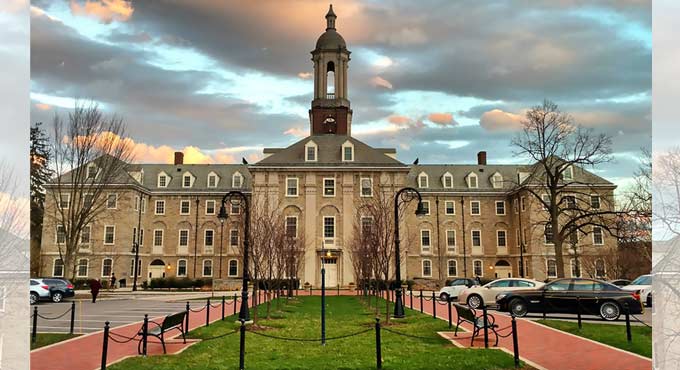Penn State University: Trustees hear presentation on U.S. and international cultures requirements
A longstanding academic requirement to expose Penn State undergraduates to United States and global cultures was the focus of a discussion today (Feb. 17) among the Board of Trustees Committee on Equity and Human Resources.
Both Beth Seymour, immediate past chair of the Faculty Senate, and Bonj Szczygiel, current chair of the Faculty Senate, outlined for the committee the “United States and International Cultures” requirement, which all Penn State students fulfill before graduation. Baccalaureate students complete three credits each in U.S. and international cultures, while associate degree students complete three credits in either U.S. or international cultures.
The presentation is part of the broader efforts of the Equity and Human Resources Committee to focus on awareness and accountability for advancing equity, inclusion and diversity at Penn State. The presentation covered the history of the requirement, which has been in place in some form since 1991 and in its current form since 2004, and highlighted the many options students have for fulfilling the requirement. For the United States cultures requirement, students can select from hundreds of courses — from ‘HIST 21: American Civilization Since 1877’ and ‘ENGL 139: African American Literature’ to ‘MGMT 445: Managing a Diverse Workforce.’
For the international cultures requirement, students can complete a course or, alternately, a structured internship or study abroad experience. Courses that fulfill the international cultures requirement range widely from ‘KINES 446: History of Sport in the Modern World’ to ‘IB 303: International Business Operations’ to ‘AFAM 432: Between Nation and Empire: The Caribbean in the 20th Century.’
Penn State also offers individual courses that fulfill both the U.S. and International Cultures requirements.
“The U.S. and International Cultures requirement is intended to encourage students to gain a deeper understanding of U.S. culture and cultures across the globe,” Szczygiel said. “We hope students’ experience in coursework, internships and study abroad will inspire them to embark on a lifetime of learning and exploration.”
Seymour and Szczygiel were introduced by Yvonne Gaudelius, vice president and dean for Undergraduate Education, whose office works with the University Faculty Senate on issues pertaining to Penn State’s undergraduate curriculum.

